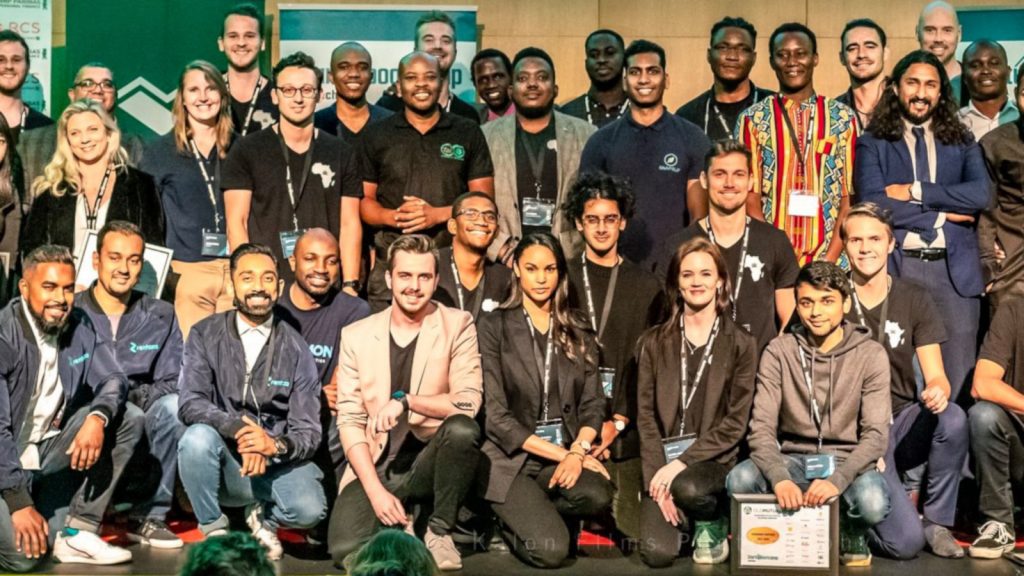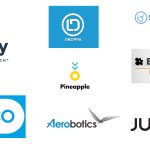With today’s discerning consumer demanding that their wearable tech be as functional as it is fashionable, the HUAWEI WATCH GT 5 Series steps boldly…
Here are 20 accelerators, incubators for African startups to apply for in 2020

Is your startup looking for technical assistance to develop its minimum viable product (MVP), funding or new clients or partnerships with corporate clients?
If you want to benefit from expert mentorship and advice, why not consider joining an incubator or accelerator programme.
African startups are increasingly getting accepted into accelerators and incubators around the world, opening them up to new markets which they would normally not have been able to access.
Moreover, there are now a number of programmes that are not only based on the continent, but specifically deal with African tech startups, which makes getting accepted for such programmes a little easier.
One example is MEST’s year-long graduate-level entrepreneurial training programme. Upon graduating from the programme, MEST helps incubate those startups formed by graduates.
Ventureburn opted not to include MEST’s programme in this list, as it is aimed at individuals rather than at startup companies. Applications for the Class of 2021 close on 7 February.
African startups are increasingly getting accepted into accelerators and incubators around the world
While there are loads of accelerators around the world that are open to African startups, Ventureburn has attempted to list some of the more prominent ones those that accept startups from the continent. They are:
Start-Up Chile: Tech startups keen on taking a shot at scaling in Latin America and an opportunity to access up to $40 000 in zero-equity funding have until 17 March to apply for Start-Up Chile’s Generation Seed24 programme. The six-month accelerator programme provides participants with access to both a national and international corporate network, investors, mentors, and global partners to scale to new markets. Foreign teams will be provided with a one-year working visa and free co-working space. All teams will have access to the Start-Up Chile community which includes up to $100 000 in perks such as Microsoft BizSpark, Facebook Start, Amazon Web Services and many more.
Alchemist Accelerator: This San Francisco-based accelerator is a venture-backed initiative focused on accelerating the development of seed-stage ventures aimed at enterprise customers (rather than ordinary consumers). The accelerator seeds around 75 enterprise-monetising ventures per year. Its six-month programme focuses on enterprise customer development, sales (direct and online), market validation and a structured path to fundraising. Startups accepted into the programme will receive $36 000 in funding and access to corporate partners that help accelerate customer development and validation. The next cohort starts on 2 April. The application deadline is this Saturday (4 January).
OceanHub Africa: Cape Town based accelerator OceanHub Africa will launch its first programme in the first quarter of 2020 with six local ocean-minded startups. The accelerator will provide startups with physical working space, access to tailored mentorship, business and scientific expertise and access to market leads. In addition, startups accepted into its programme also stand to benefit from hands-on services from corporate partners — these will include cloud and IT services as well as access to an engineering and software suite for prototyping and testing and support with fundraising including pitching and structuring of deals.
Itanna: Sector-agnostic accelerator Itanna, which is located at the Enterprise Factory in Lagos, provides mentorship, facilitated networking and growth capital. The accelerator had not yet announced application deadlines at the time Ventureburn compiled this list.
Vatebra Tech Hub: Lagos-based Vatebra Tech Hub runs a six-month incubation programme that covers software and product development, sales, marketing, finance and legal issues. Startups accepted into the programme will receive $10 000 in Amazon Web Service (AWS) credits. In addition, participants stand to benefit from access to funding from the Bank of Industry as well as access to international markets and a network of investors. Applications close tomorrow (3 January).
Y Combinator: Twice a year, US seed accelerator Y Combinator invests millions of dollars ($150 000 in each selected startup, in exchange for seven percent equity) in a large number of startups from around the world. Over the course of three months in Silicon Valley, Y Combinator works intensively with each startup, helping them to refine their pitch to investors. Applications for the Winter 2020 batch closed in September, so look out for the deadline for the next batch.
HiiL Justice Accelerator: If your startup has developed an innovative justice solution, you’ll want to consider applying for the Hague-based HiiL Justice Accelerator. The accelerator provides grant funding, justice sector expertise and networking, as well as access to local mentorship and support. Last year, applications for the accelerator opened in June. Startups accepted into the accelerator receive grant funding of up to €20 000.
Injini: Although applications for the fourth cohort of Cape Town based edtech incubator Injini closed last month, you’ll want to keep an eye out for their next application cycle. This year the incubator will support up to eight edtech startups with financial and advisory resources throughout the course of the incubation programme, which will run from March to August. The incubator works with startups with evidence-based solutions that address key problems that face the education sector in Africa, with at least a minimum viable product or prototype.
Google Launchpad Accelerator Africa: Do you run a seed-stage startup in Algeria, Botswana, Cameroon, Ivory Coast, Egypt, Ethiopia, Ghana, Kenya, Morocco, Nigeria, Rwanda, Senegal, South Africa, Tanzania, Tunisia, Uganda and Zimbabwe? Then you might qualify for Google’s Launchpad Accelerator Africa. Google provides equity-free support, access to its engineers and intensive mentoring from over 20 teams, access to Silicon Valley experts and top local mentors, public relations training and global media opportunities as well as close partnership with Google for three months. Application dates for 2020 have not been announced as yet.
Fb Start Accelerator: This Lagos-based accelerator — an initiative of social media giant Facebook and Nigeria’s Co-Creation Hub — features a research and mentorship driven six-month long programme for Nigerian and Ghanaian innovators working on artificial intelligence (AI), machine learning, augmented reality (AR) and virtual reality (VR). Those accepted into the programme will receive up to $20 000 in equity-free funding, product development and business support, access to technical experts and business mentors from the Facebook and CcHub network and an office space with high-speed internet, meeting rooms and more. Last year, applications for the accelerator closed in June, so keep an eye out.
Startupbootcamp Afritech: This Cape Town based accelerator focuses on high-growth tech startups in verticals such as fintech, insurtech and retailtech. Over its three-month programme, the accelerator claims the 10 startups it selects for each of its cohorts will have achieved in three months what would normally take them 18 months to achieve. It says it does this by leveraging direct access to key contacts in the industry. SBC Afritech provides each selected startup with €15 000 — for an eight percent equity stake — in addition to access to mentors from the fintech, insurtech and regtech industries, as well as office space. Applications dates for 2020 have yet to be announced.
Labs by ARM 2.0: Labs by ARM 2.0 is designed to engage Nigerian post-MVP fintech startups in a series of activities aimed at exponentially advancing the growth of their companies within 12 weeks, while ensuring their investment-readiness. Selected startups will be provided with financial investment, distribution and access to investors. Participants are provided with office space, access to asset management firm ARM’s network and carefully selected mentors from the fintech industry who will provide hands-on support and valuable introductions. Applications for the second cohort of the accelerator closed on 30 December. It’s not clear if the accelerator will hold a third cohort or not, so keep an eye out for any announcement on upcoming application cycles.
Katapult Accelerator: This Norwegian accelerator works with startups that use exponential technologies like artificial intelligence (AI), the Internet of Things (IoT) and blockchain to solve environmental and societal problems. Startups selected to take part in the accelerator’s three-month programme receive $150 000 in investment, in exchange for eight percent equity. At the time of writing, applications for its 2020 programme, which kicks off in Oslo in March, had officially closed, but its application portal was still open.
Flat6Labs: This Middle East and North Africa (MENA) startup accelerator runs programmes in Cairo and Tunisia. It provides seed funding, strategic mentorship, a creative workspace, a multitude of perks, entrepreneurship-focused business training and supports startups through an expansive network of partner entities, mentors and investors. Look out for key dates on the application cycles for its next cohorts.
Startupbootcamp Fintech Cairo: Startupbootcamp FinTech Cairo runs a six-month programme supported by Cairo-based fintech focused venture capital firm Pride Capital. The programme is designed to help early-stage Egyptian fintech startups to scale their businesses. While the deadline for the programme’s second cohort closed last month, it is very likely that the accelerator will run another call for applications later this year.
Grindstone Accelerator: Jointly owned by South African venture capital firm Knife Capital and Thinkroom Consulting, the Grindstone Accelerator assists high-growth innovation-driven small businesses to become sustainable and fundable through a year-long programme. Ten South African startups are selected per cohort. The date for the next application phase has yet to be announced.
AUC Venture Lab: AUC Venture Lab (AUC V-Lab) is Egypt’s first university-based incubator and accelerator at The American University in Cairo. The 16-week programme provides support for early-stage and innovative startups to launch and grow their business using evidence-based entrepreneurship support and lean startup methods. With the support of its corporate sponsors, the accelerator works across multiple verticals including e-commerce, energy, healthcare and the creative industries. Applications for the Spring 2020 cohort, which will take place between 25 January and 31 May closed on 31 December. If you missed that deadline you’ll want to look out for the next application cycle.
Impulse Accelerator: This Moroccan accelerator was launched last year. Its 12-week programme — which was designed by global accelerator organisation MassChallenge — is aimed at startups in the agritech, biotech, mining tech, materials science and nano engineering verticals that have a proof of concept or a minimum viable product (MVP). Applications for the 2020 cohort opened last July and closed in October (with a demo day scheduled for April). The accelerator has yet to announce application dates for its 2021 cohort.
Akro Accelerator: Cape Town based venture builder Akro runs a 20-week acceleration programme. The accelerator’s first two cohorts, run last year, were funded by the SA SME Fund. Startups accepted into its programme stand to benefit from access to experts and advisors, including software architects, designers and other product builders. The accelerator also provides co-working space in Cape Town as well as access to potential partners, client networks and investors. It’s not clear when applications for the third cohort will open.
MAN Impact Accelerator: The MAN Impact Accelerator works with startups in the field of mobility, transport and logistics to tackle social and environmental challenges. Although the accelerator primarily sources applications from South Africa on the continent, startups from Mozambique, Rwanda, Uganda, Kenya, Nigeria and Tanzania can also apply. To be considered for the programme, startups must have a strong logistics, transport or mobility focus, with a prototype and preferably early revenues. In addition, startups must also have a have a strong purpose and create both tangible and measurable impact beyond financial returns. Last year applications for the accelerator programme opened in August and closed in October.
Featured image: Part of Startupbootcamp AfriTech’s 2019 cohort at a demo day event last November (Startupbootcamp AfriTech via Facebook)

